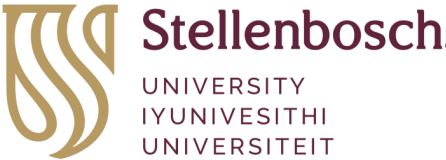
Written by Liesel Koch: Corporate Marketer, Dean’s Division, Faculty of Engineering
“During my undergraduate studies I developed an interest in Bioprocess Engineering and wanted to work in the pharmaceutical or food and beverage industry. When selecting a final-year research project, it just happens to combine all my interests with my favourite lecturer, Dr Robbie Pott, as the supervisor and that’s how I decided on the topic. For this project, visiting wine farms is considered ‘research’ and who can say no to that,” says Carlie Kriel who received her master’s degree in Chemical Engineering in April 2020.
“Dr Pott offered me an opportunity to continue with the project as a master’s degree. The title of my master’s was The extraction of resveratrol and other polyphenols from solid winery waste and an investigation into alternative resveratrol recovery techniques. I loved the project and felt that doing my master’s could help me develop several new skills.”
Carlie explains: “Resveratrol is a compound produced by plant species in Vitis vinifera (the common grape vine) to protect the plant against stress. Interest in resveratrol from Vitis vinifera originated from the ‘French paradox’, where the French population had a diet high in saturated fats along with red wine, while cardiovascular diseases were less than expected. During the winemaking process compounds like resveratrol solubilise into the wine, while the rest of the resveratrol remain in the significant amount of solid waste produced. The aim of this project was to investigate if winery waste (skins, seeds, stems, canes and leaves) could be used as a source of resveratrol and other valuable compounds and if it could be recovered using alternative, low cost and environmentally conscious methods. A solution of salt and polymer would be used to extract the resveratrol from the waste products and should then be concentrated into something edible. The project focused on getting the resveratrol into a food additive (maltodextrin) or by binding the resveratrol to commonly used proteins such as egg whites and yeast extract, to be able to be consumed.”
The outcome of her research proved to be very valuable. She says: “We recently published a paper (Quantification of resveratrol in different parts of solid Pinotage winery waste: Investigating the variance between consecutive harvests) in the South African Journal of Oenology and Viticulture where we provide more information about the resveratrol variance in Pinotage vines. This could possibly be useful if winery waste is used as resveratrol source. Some of the work in my project contributed to a section of a patent to extract and recover resveratrol with alternative techniques. This project made contributions to resveratrol research by investigating the waste of an entire grape vine as a resveratrol source as well as investigating alternative methods (not currently used) to recover resveratrol.”
When asked about the joys and challenges of doing postgrad, Carlie replies: “The joys included presenting my work at a conference in Belgium, working with a great group of people in our research group, working on something every day that I enjoy and, obviously the wine. The challenges were lots and lots of failed experiments. Since the work was novel, it was difficult not being able to compare results or observations with other research to find solutions and resulted in a lot trial and error.
“I’m currently busy with a few courses to keep busy and recently started a German course, while I’m still looking for a job. Luckily, during lockdown, I am with my family and I am trying out all my recipes on them. I basically just bake, paint, send out my CV and repeat. In the future I hope to work in the pharmaceutical or food and beverage industry and incorporate alternative solutions to make the industry more environmentally conscious.” she concludes.
Thesis title: The extraction of resveratrol and other polyphenols from solid winery waste and an investigation into alternative resveratrol recovery techniques.
Summary: Resveratrol is a phenolic compound produced by several plant species such as Vitis vinifera and is of interest as nutraceutical supplement with a significant market value. Winemaking is one of the largest agricultural activities in the world and produces significant amount of solid biomass waste, which is often rich in resveratrol. The aim of this work was to investigate, through consecutive harvests to estimate variability, solid winery waste as a source of resveratrol to produce a high value antioxidant supplement. As well as to investigate aqueous two-phase systems and protein precipitation as resveratrol recovery methods and improve downstream purification processes.
Photograph: Carlie Kriel (left) and the magnificent Stellenbosch vineyards.



